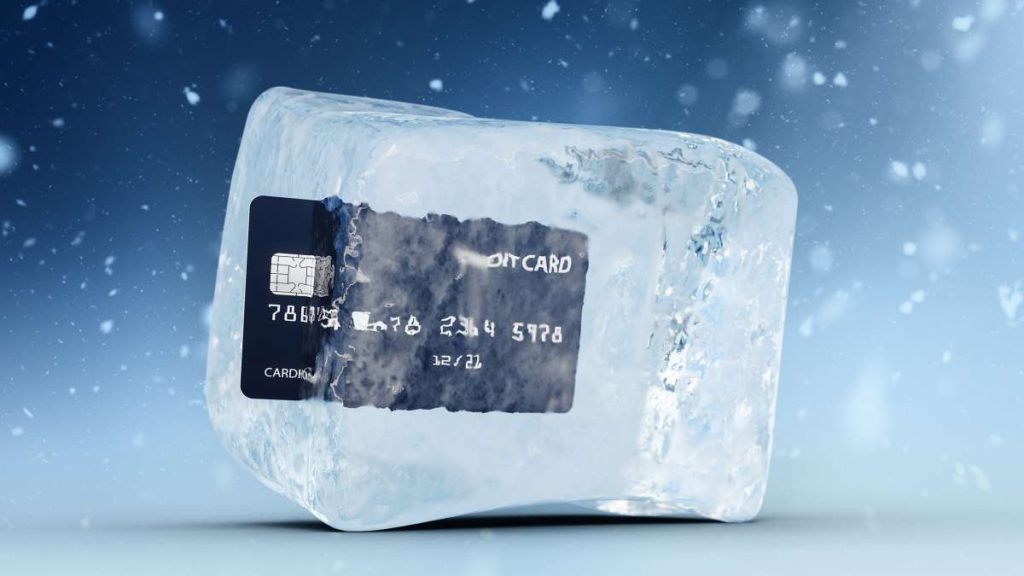In today’s digital age, protecting your personal information from identity theft and fraud is more important than ever. While there are various measures you can take to safeguard your financial well-being, one powerful tool that often goes overlooked is a credit freeze. By placing a security freeze on your credit report, you can prevent unauthorized access to your credit information and reduce the risk of fraudulent activity. In this article, we’ll explore how a credit freeze works, why it’s beneficial, and when you should consider implementing one to protect yourself from financial harm.
Understanding Debt Relief Programs
Before delving into the intricacies of credit freezes, it’s essential to understand the broader context of debt relief programs. Debt relief programs offer individuals facing financial hardship the opportunity to manage and reduce their debts effectively. These programs, often provided by reputable credit counseling agencies, can include debt consolidation, negotiation with creditors, and financial education to empower individuals to take control of their finances and achieve debt-free living.
The Role of Debt Relief Programs
Dealing with debt can be overwhelming, but debt relief programs offer a path toward financial freedom. By consolidating debts into manageable monthly payments, negotiating with creditors to lower interest rates, and providing essential financial education, debt relief programs empower individuals to regain control of their finances and build a brighter financial future.
What is a Credit Freeze?
A credit freeze, also known as a security freeze, is a proactive measure to restrict access to your credit report. By placing a freeze on your credit file, you prevent creditors from viewing your report or approving new credit accounts in your name without your explicit consent. This added layer of security helps thwart identity thieves from opening fraudulent accounts using your personal information.
How Does It Work?
When you initiate a credit freeze, you’ll need to contact each of the three major credit bureaus – Equifax, Experian, and TransUnion – to request the freeze. Once in place, the credit bureaus will restrict access to your credit report, making it inaccessible to creditors and lenders. Without access to your credit information, identity thieves will have a much harder time opening new accounts in your name.
Benefits of a Credit Freeze
Placing a credit freeze offers several key benefits for protecting your financial well-being:
- Prevents Unauthorized Credit Inquiries: By blocking access to your credit report, a freeze prevents unauthorized individuals from pulling your credit information without your consent.
- Reduces Risk of Identity Theft: Identity thieves often target individuals’ credit information to open fraudulent accounts. A credit freeze makes it significantly more challenging for them to succeed in their nefarious activities.
- Provides Peace of Mind: Rest assured, knowing your credit information is protected can bring peace of mind and ease worries about potential identity theft and fraud.
When Should You Consider a Credit Freeze?
While a credit freeze can be a valuable tool for protecting your financial information, it’s essential to consider whether it’s the right choice for your situation. Here are some scenarios in which you may want to consider placing a credit freeze:
- After Experiencing Identity Theft: If you suspect your personal information has been compromised or have been a victim of identity theft, placing a credit freeze can effectively prevent further fraudulent activity.
- Before Becoming a Victim: Proactively safeguarding your credit information can save you time, money, and stress by preventing identity theft before it happens.
- When You’re Not Applying for Credit: If you’re not planning to apply for new credit in the near future, a credit freeze can provide an added layer of security without impacting your day-to-day financial activities.
How to Place a Credit Freeze
Placing a credit freeze is a straightforward process, but it’s essential to follow the correct steps. Here’s how to initiate a credit freeze:
- Contact Each Credit Bureau: Reach out to Equifax, Experian, and TransUnion individually to request a credit freeze. You can typically do this online, by phone, or by mail.
- Provide Necessary Information: You’ll need to provide identifying information, such as your name, address, Social Security number, and date of birth, to verify your identity and initiate the freeze.
- Receive Confirmation: Once your credit freeze is in place, you’ll receive confirmation from each credit bureau, along with instructions on how to lift or remove the freeze if necessary.
Conclusion
In an era of escalating digital threats and identity theft, safeguarding your financial information has never been more crucial. A credit freeze stands out as a powerful and effective measure to protect your credit report and mitigate the risk of identity theft and fraud. By understanding the mechanics of credit freezes, recognizing when to implement one, and knowing how to initiate the process, you can take command of your financial security and achieve greater peace of mind in an unpredictable world. Consider exploring the option of placing a credit freeze today to shield yourself from potential financial harm in the future.




